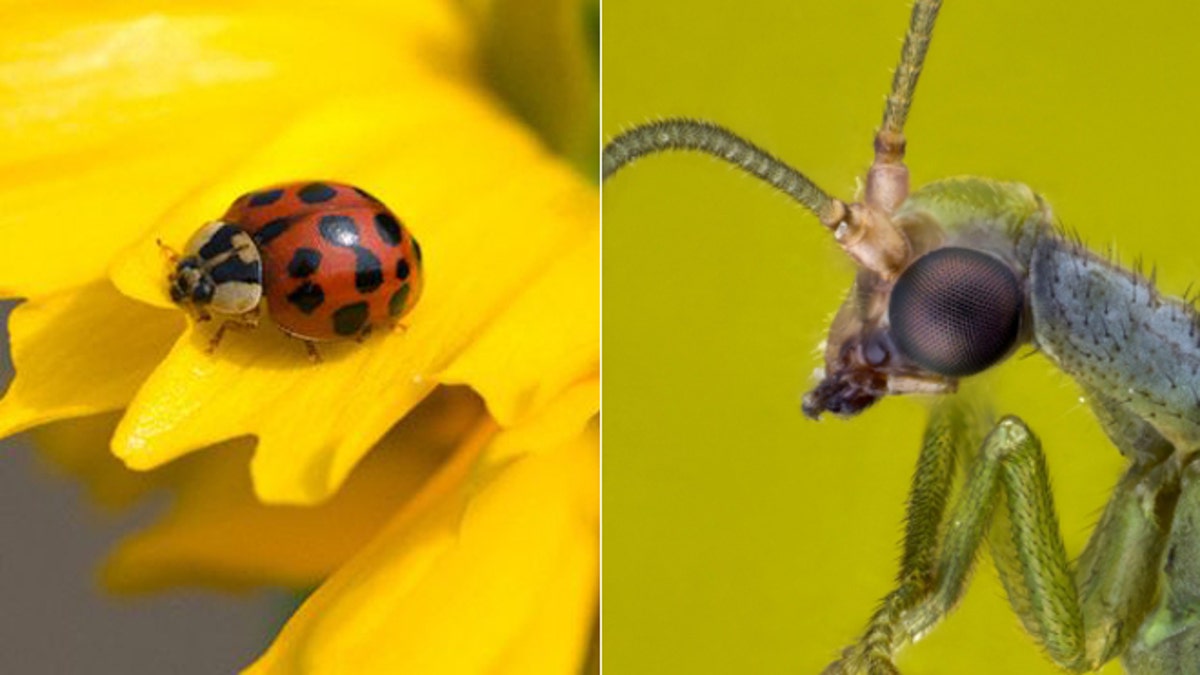
Ladybug and Green Lacewing
It’s census time in the Panamanian jungle for the millions of insects that call the region home.
A multinational group of scientists, including one from the Smithsonian Institute in Washington D.C., just completed the first ever census of insects in the Panamanian rainforest and came away with a stunning conclusion: the number of different arthropod species outnumber those of mammals 312 to 1.
Arthropods - a group that includes insects, arachnids, and crustaceans – have been notorious to catalogue due to their small size and their generally inaccessible habitat.
“They are small and can make a living out of nearly everything, including other arthropods, decomposing matter, plant tissues, etc,” said Yves Basset from the Smithsonian Tropical Research Institute.
The group of scientists, working on Project IBISCA-Panama, canvassed a 23.1 square mile area, categorizing, sorting and sampling the region’s bug life and estimated that 25,000 different arthropod species reside in the region – vastly outnumbering that of the better studied mammal population.
Basset and his team worked for two years in the Panamanian jungle and sent their findings to labs all over the globe for identification. It took a group of over 100 scientists more than eight years to process all the findings.
“Arthropods are important in all the functions of the forest: pollination, early decomposition, [consumption] of leaves in the forest, [providing] nutrients in soil, and regeneration of [the] forest,” says id Basset, scientific coordinator of the Institute’s CFTS Arthropod Initiative.
While arthropods tend to thrive in hot, tropical climates and rainforests, the research team hypothesized that these numbers should be fairly common in other regions of the world and even more skewed in bugs favor in urban areas.
“The mammal fauna in cities is rather depleted, but not necessarily that of arthropods,” Yves Basset told Discovery News. “For example, a small urban park may not host many mammal species, because it may be a too small area to sustain species requirements, such as food and living space. However, let’s say you have 10 species of trees in this park, then they may well support as many as 200 arthropod species, according to our data.”
While many humans believe that bugs – especially those like roaches – are detrimental to the world, scientists argue that those types are outliers and as most arthropods live in the heavily forested places, they help maintain both the natural process of woodland areas and play a critical role in our own environmental survival.’
"They are what make communities run. They are the garbage disposers. They are the pollinators. They are the food for other organisms," said May Berenbaum, an insect ecologist at the University of Illinois at Urbana-Champaign, who wasn't involved in the Panama study, according to NPR.
"If you don't know what's there, you don't know what's missing, and you don't know how to set aside, or how to save what you need to preserve the entire community," Berenbaum added.
Follow us on twitter.com/foxnewslatino
Like us at facebook.com/foxnewslatino








































